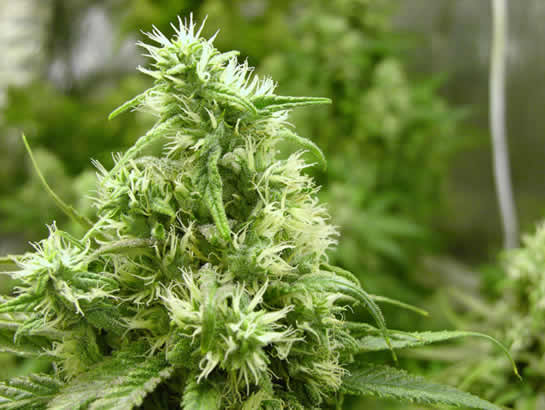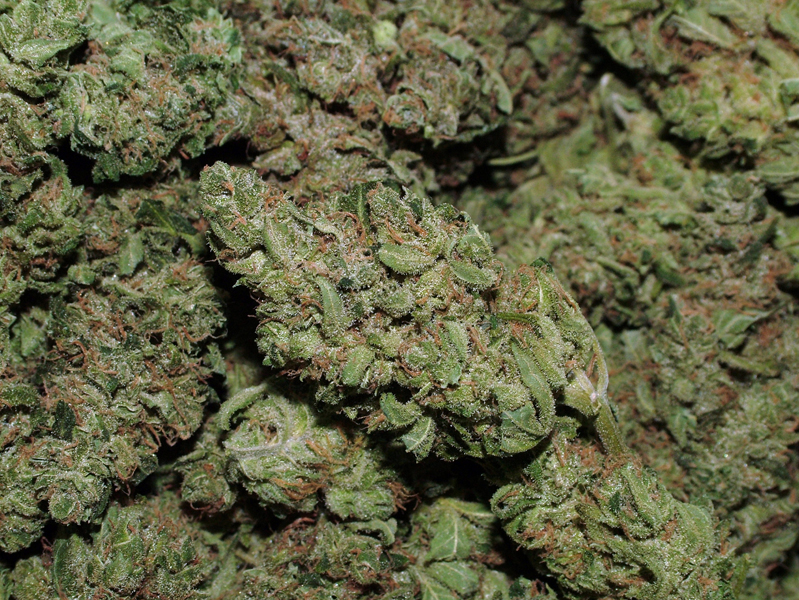 Congress Moving To Block DC Marijuana Legalization
Congress Moving To Block DC Marijuana Legalization
Congress may be planning to block Washington D.C.’s marijuana legalization initiative that was approved by voters last month. There hasn’t been any official statements made yet but, various rumors are circulating saying everything from the law will stay the same, all the way to saying the entire initiative may be scrapped. We’ll keep you posted on what happens, but so far many activists organizations have made statements about the possibility that Congress will blatantly ignore the will of the people in DC.
The Cannabis Industry Association says
“D.C. voters overwhelmingly chose to take a smarter and safer approach to marijuana policy by allowing for the creation of a responsible, regulated system for production and sales,” said NCIA executive director Aaron Smith.
“Apparently, Congress is not interested in being smart, or safe, or democratic.
“Dictatorially blocking D.C.’s ability to create a regulatory system for already-decriminalized marijuana isn’t just a violation of the voters’ clearly stated will. It would rob the city of the chance to mandate responsible selling practices, monitor for safe products, and benefit from a powerful economic engine.
“This is a move that would manage to be both cynical and stupid, not to mention deeply out of touch with the majority of American voters, who want the federal government to butt out of local marijuana policy choices.”
 Law Enforcement Against Prohibition says:
Law Enforcement Against Prohibition says:
The Washington Post is reporting that Congressional efforts may undermine DC home rule and block Initiative 71, despite 70% of District voters casting ballots in favor of the new law. If Congress approves the initiative, adults in DC would legally be able to cultivate and possess marijuana. But some Congressmembers, realizing their colleagues wouldn’t support blocking the initiative directly, undermining home rule and the will of a majority of Americans, have instead included language blocking the measure in the spending bill, which can limit the federal funds DC receives.
“Those who fight sensible marijuana reform risk losing a tremendous amount of political support, even within their own party,” said Major Neill Franklin (Ret.) executive director of Law Enforcement Against Prohibition. “But those who encourage these new policy changes that are already being demanded by a majority of Americans, will be vindicated as pioneers of intelligent public safety improvements. If democracy still matters to our leaders, they have to listen to the voters.”
Law Enforcement Against Prohibition (LEAP) is concerned that blocking marijuana legalization will continue to promote a public safety nightmare of increased gang violence, police militarization and the fueling of dangerous underground markets. Decriminalization does not go far enough because marijuana is still not regulated by any measure of quality of safety standards and drug dealers don’t ask for IDs, making the drug far more dangerous and easier for children to obtain.
 The Drug Policy Alliance says:
The Drug Policy Alliance says:
Media sources are reporting that members of Congress are negotiating provisions to a government funding bill that would block the nation’s capital in its efforts to legalize marijuana. Initiative 71 passed on Nov. 4, with 70% of voters approving the measure to legalize small amounts of marijuana for personal use. The language has been included in a must-pass funding bill that Congress will likely vote on later this week.
“Democratic leadership made it clear they would stand with voters on this crucial racial justice issue, and push back against Republican opposition to the D.C. law,” said Michael Collins, Policy Manager at Drug Policy Alliance’s Office of National Affairs. “Democrats have always made claims of supporting D.C. home rule now is their chance to stand with 70% of voters in the District who voted for marijuana reform,” Collins said.
The campaign for Initiative 71 was based squarely on ending racially-biased enforcement of marijuana laws, following a 2013 ACLU report that showed that African Americans were eight times more likely to be arrested for marijuana possession than whites, despite use rates being the same across races.
A number of civil rights and other advocacy groups such as the Drug Policy Alliance, D.C. Vote, and the D.C. branches of the ACLU, NAACP, and the National Organization of Women have signed on to an open letter encouraging democratic leadership to protect the will of D.C. voters in the budget negotiations process. “As you conclude negotiations over the FY15 Financial Services and General Government appropriations bill, we urge you to reject all efforts to include undemocratic restrictions on DC’s rights,” the letter said.
Democrats are rumored to be cutting a deal with Republicans where they can save face by claiming that they protected D.C.’s marijuana decriminalization law from elimination, even if they failed to protect legalization. The decriminalization law, passed by the D.C. City Council earlier this year, replaced prosecution with a civil penalty of $25 for possession. But giving up legalization in budget negotiations to protect the decriminalization law is a pyrrhic victory. The D.C. decriminalization law still means that police can stop people of color and harass them, as 77% of tickets written by police for marijuana offenses were given in communities of color. Legalization ends this process completely, while simultaneously eliminating the dangerous illicit market.
“In light of recent events in Ferguson and New York, it is particularly disturbing that Congress would choose to overturn the will of the voters in a majority black city,” said Dr. Malik Burnett, Policy Manager at Drug Policy Alliance and Vice-Chair of the D.C. Cannabis Campaign, which was responsible for the passage of Initiative 71. “D.C. voters chose to reform their marijuana laws, which have a direct impact on how communities of color interact with police. Congress is poised to undermine that.”
Cramming language that blocks D.C.’s marijuana initiative into a must-pass funding bill was a strategy deliberately chosen by Hal Roger (R-KY), Chair of the House Appropriations Committee, and Andy Harris (R-MD), the amendment’s sponsor. “It was clear from five marijuana reform wins on the House floor this summer that Harris and Rogers didn’t have the votes to block this by holding a vote in the House and Senate,” Collins said. “The Republican Party is split on the issue of marijuana reform, and most know that this issue is only headed in one direction – Harris and Rogers are on the wrong side of history.” While Democrats like Congresswoman Norton (D-D.C.) have been strong champions on this issue, Democratic leadership appear ready to cede to the demands of Hal Rogers.
This development is especially appalling given that last month’s election appeared to solidify drug policy reform’s place as a mainstream political issue – not just in D.C. but throughout the United States. Voters across the country accelerated the unprecedented momentum to legalize marijuana and end the wider drug war, with marijuana legalization measures passing in Oregon, Alaska and Washington, D.C., and with groundbreaking criminal justice reforms passing in California and New Jersey. Polls over the past few years have consistently found that a clear majority of Americans support marijuana legalization and other drug policy reforms.
Give us your reaction in the comments below…
Leave a Reply
